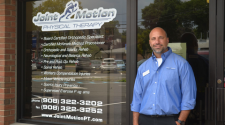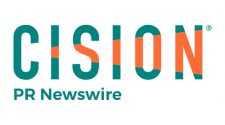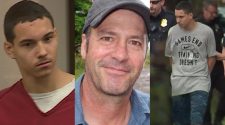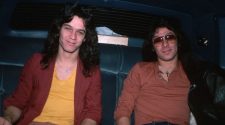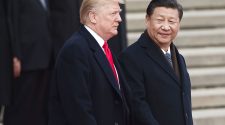Blocksom was accused of shooting Chester Morrison, 36, of Commerce.
Bearden said there are weeks of preparation by the prosecution and defense to make something like Monday’s hearing possible.
None of this process can occur unless all parties — the prosecutors, the defense attorneys, the defendant and victims — agree.
“It really has to be that unique situation where you have everyone agreeing that this is an acceptable method of resolving the matter,” Bearden said.
Brett Willis, Blocksom’s attorney, said he felt the technological set-up would not work in every case.
“This isn’t a one-size-fits-all cure,” Willis said. “Mr. Blocksom was eager and willing to close the case and provide closure for the parties including and especially the victim’s family. This was the best way to accomplish those goals given the circumstances of the pandemic.”
Evidence presentation and arguments, interrupted by a couple of breaks and a few technical difficulties, lasted roughly four hours on Monday.
At times in the courtroom, the only people sitting in the courtroom gallery were Northeastern Judicial Circuit District Attorney Lee Darragh, a courthouse employee assisting with technology and two representatives from The Times.
Meanwhile, the witnesses, members of the Morrison family, Willis and Blocksom were watching through a teleconferencing application.
“One thing just in court in general that we sometimes struggle with is when we have this hybrid mix of where some people are in person and some people are appearing remotely — how do you constantly battle muting and unmuting?” Bearden asked.
A defendant and the defense attorney are usually able to whisper and write notes with each other at the defense table, but Willis and Blocksom were able to communicate by cellphone during the hearing.
February trials in Hall were canceled in a Jan. 8 announcement, and court administrator Jason Stephenson did not have any updates Wednesday, Feb. 3, on when the court might resume jury trials or grand jury sessions.
Superior Court trials have been on hold in Hall since March, though grand jury sessions were able to resume in the Gainesville Municipal Court in November.
The court has still been trying to handle pleas, bond revocations and other essential matters as needed, often using Zoom.
“Although it’s been almost a year now since we’ve been shuttered, you can’t lose sight of the fact that you’ve got to still do this in a healthy and responsible way because you certainly don’t want to jeopardize the lives of anybody that’s coming to answer their civic duty to serve as a juror,” Bearden said.
Solicitor General Stephanie Woodard, who has been part of the COVID-19 jury committee that has brainstormed how to resume trials safely, previously told The Times that a defendant’s constitutional right to confront one’s accuser “contemplates in-person testimony that the defendant can see and hear.”
“The big goal is to figure out how to bring in jurors and socially distance them and then to conduct a trial where not everybody can wear a mask,” Stephenson told The Times in September. “Because defendants, jurors and witnesses, you need to be able to see their faces. You need to be able to gauge credibility.”
Stephenson said they still plan to have a test-run case with less complicated evidence presentation so that the court can tweak its protocols.
A specific case that might serve as this guinea pig has not been identified, he said.

